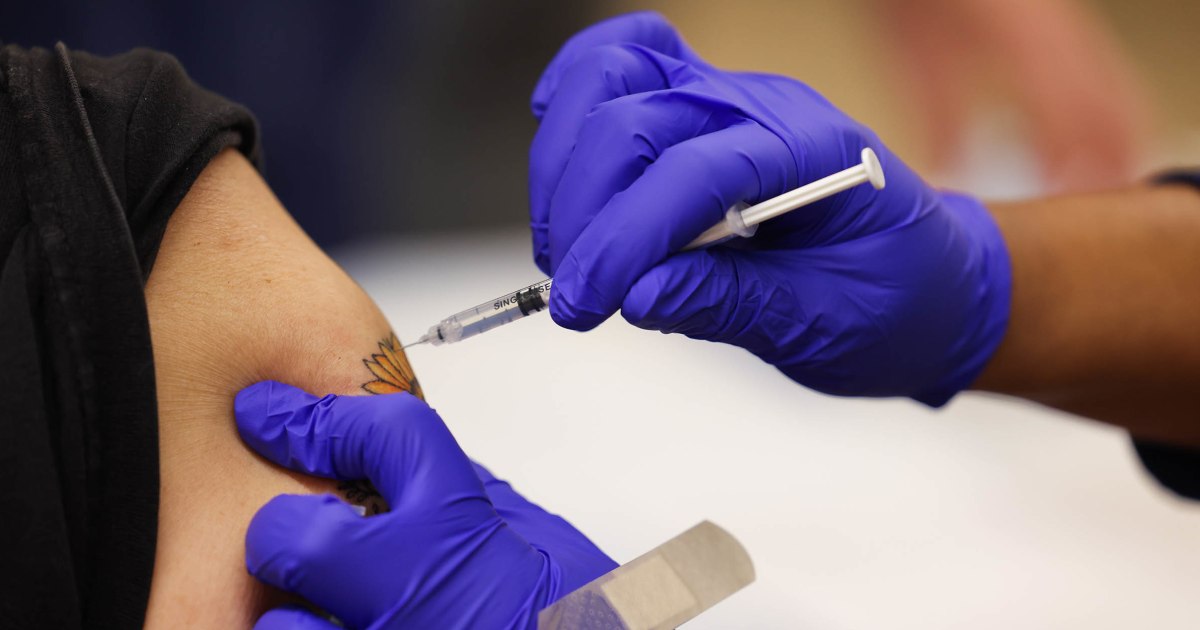As your immunity wanes from previous infection and vaccination, the best way to protect yourself against COVID-19 is to get the new COVID vaccine. There are three currently available — is one better than the others?
The main purpose of the vaccines is not to prevent infection, but rather to protect you after an infection so you don’t get so sick that you need to be hospitalized or worse, die from the illness.
The FDA recently approved the updated mRNA Pfizer and Moderna boosters, as well as the updated Novavax COVID vaccine, to better target the current circulating variants in the community. The Novavax vaccine is the newest vaccine available but works differently from the mRNA vaccines.
Here is a summary of the similarities and differences to help you decide which COVID vaccine is better for you.
What COVID vaccines are available in the US?
There are three COVID vaccines available in the United States:
- 2024–2025 Moderna vaccine
- 2024–2025 Pfizer-BioNTech vaccine
- 2024–2025 Novavax vaccine
The Johnson & Johnson vaccine (Janssen) is no longer available as the government stock expired on May 7, 2023.
How do mRNA COVID vaccines work?
In general, vaccines work by stimulating the body’s natural immune response so the body can better fight off an infection should it be exposed later.
The mRNA COVID-19 vaccines do this by causing the body to create a piece of a protein similar to one found in the coronavirus. (The protein that the body creates in response to the mRNA vaccine is harmless.) The presence of the protein triggers an immune response, where the body produces antibodies against COVID-19.
The vaccines do not change or influence your genetic material, and after the protein piece is made, the body breaks down the contents of the vaccine, which leave the body as waste.
How does Novavax COVID vaccine work?
Whereas the mRNA vaccines give instructions to our cells to create the coronavirus protein, the Novavax vaccine already contains a specially formulated, harmless protein that also prompts the body to create antibodies against the coronavirus.
It also contains another ingredient, known an adjuvant, that helps bolsters the immune system’s response.
Pfizer and Moderna vaccines: Who can get it, safety and efficacy
This vaccines was first introduced in December 2020 to protect against the original SARS-CoV-2 virus.
The Food and Drug Administration (FDA) granted Pfizer full approval for the vaccine on Aug. 2021 for people ages 16 and older and granted Moderna full approval for people 18 years and older in January 2022.
As the virus continued to mutate, the vaccines have been updated three times — most recently in 2024 to protect against the omicron variant KP.2, which was circulating earlier this year.
Who can get the Pfizer and Moderna vaccines?
Anyone 6 months and older can get either Pfizer or Moderna updated vaccines.
The U.S. Centers for Disease Control and Prevention have specific recommendations on their website for the number of doses needed, depending on their age and prior vaccination status.
How effective are the Pfizer and Moderna vaccines?
Pfizer and Moderna vaccines are both safe and have similar effectiveness at preventing COVID-19 illness. Clinical trial data when they were first released in December 2020 showed 95% efficacy for Pfizer and 94.1% for Moderna.
Recent studies also show the latest updated vaccines protect against severe illness from the current circulating variants.
How safe are the Pfizer and Moderna vaccines?
The mRNA vaccines have gone through “the most intense vaccine safety monitoring in U.S. history,” the CDC notes on its website. The FDA and CDC both say they are safe.
The main side effects are similar as other vaccines and generally go away in several days. These include:
- Injection site pain, redness or soreness
- Fatigue
- Headache
- Muscle pain
- Joint pain
- Chills
- Fever
In very rare cases, people may experience a severe allergic reaction, such as swelling of the airway or widespread rash.
There are also rare instances of people, especially adolescent and young adult males, developing inflammation of the heart, called myocarditis or pericarditis, after the vaccine — the rate is about is 35.9 per 100,000 people, research shows.
However, the risk of developing the same complication after a COVID infection for the same age group is anywhere from 1.8 to 5.6 times higher than with vaccination, according to CDC data.
Novavax vaccine: Who can get it, safety and efficacy
The Novavax vaccine is the only non-mRNA COVID-19 vaccine approved in the U.S.
Who can get the Novavax vaccine?
The FDA has authorized the updated 2024-2025 vaccine for individuals ages 12 and older under emergency use.
How effective is the Novavax vaccine?
The original vaccine was 90% effective against developing symptomatic COVID-19 infection and 100% effective against moderate and severe disease, according to results published in December 2021.
The updated vaccine targets the JN.1 variant, which is slightly older than KP.2, but the company reported data that showed the vaccine provides immunity against multiple variant strains recently circulating.
How safe is the Novavax vaccine?
When authorizing the 2024-2025 Novavax vaccine for emergency use, the FDA said it “meets the FDA’s standards for safety, effectiveness and manufacturing quality” needed for the authorization.
The possible side effects include:
- Injection site tenderness, pain and redness
- Fatigue
- Headache
- Muscle pain
- Joint pain
- Chills
- Fever
In a clinical trial, six out of 40,000 participants developed either myocarditis or pericarditis. The vaccine can also have rare allergic side effects.
Which COVID vaccine is better?
The COVID vaccine that’s best for you comes down to personal preference and what your health care provider suggests.
The CDC does not have preference for one vaccine over the others, and the FDA says they are all safe and effective.
In fact, they all have about the same level of effectiveness, too: A 2023 study finding both types of COVID vaccines (mRNA and Novavax) were more than 90% effective against SARS-CoV-2 in people over 18 years old.
Recent research has found that Novavax may cause fewer side effects than the mRNA vaccines, but there are not enough studies to apply this to general population.
What about special populations?
Although the vaccines have not be as effective and may mount a lower immune response in those who are immunocompromised, the CDC does not recommend one brand of vaccine over another in this population.
It is most important that older and immunocompromised adults stay up-to-date with their COVID-19 vaccinations, regardless of which brand they choose.
The CDC also does not recommend a specific vaccine for the pregnant population. The leading medical groups all recommend pregnant people get vaccinated against COVID-19 to reduce the risk of illness for the mother and protect young babies from getting hospitalized from COVID-19.
If you are pregnant or planning to become pregnant, talk to your doctor about which vaccine is best for you.
Where to get your COVID vaccine
Vaccines.gov is a helpful website to find the nearest pharmacy where you can get a vaccine.
You can also go directly to the Pfizer website, the Moderna website or the Novavax website to find the nearest pharmacy near you with COVID vaccines available.
Read the full article here
















